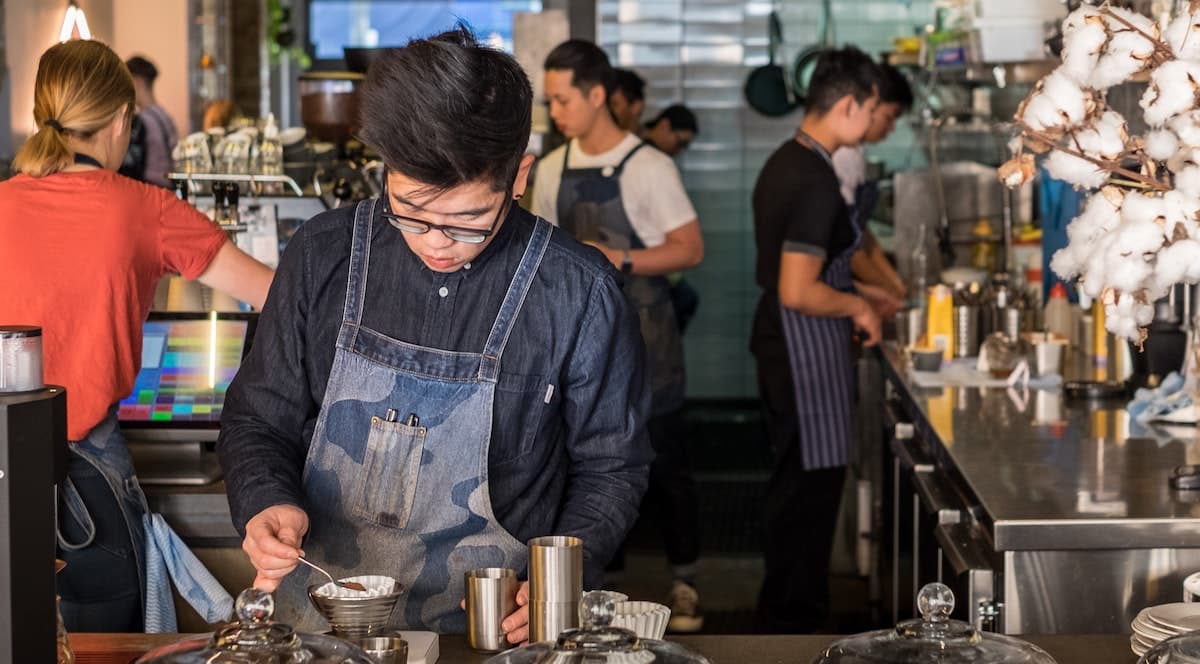Small business groups are backing the NSW government’s contentious push to repeal a rule that allows frontline workers easy access to workers compensation if they catch COVID-19.
In a statement, the Council of Small Business Australia (COSBOA) stated that it welcomes the NSW Government’s decision to remove section 19B of the Workers Compensation Act (1987).
“We support the NSW Gov’s plan to repeal the worker’s comp presumption that if an employee catches COVID-19 they caught it at work. If this stays, insurance premiums will rise and small biz will employ fewer people. There are better ways to support workers,” COSBOA said in a tweet.
The NSW Government previously stated that it intends to remove Section 19B of the Workers Compensation Act 1987 while ensuring that workers are still protected if they contract COVID-19 at work. The Act was amended in May 2020, when little was known about COVID-19 and its transmission.
According to current estimates based on Doherty Institute modelling, COVID-19 claims could cost the NSW workers compensation system up to $638 million in the coming year, according to Minister for Finance and Small Business Damien Tudehope.
COSBOA CEO Alexi Boyd said, “Small business employers in New South Wales will be relieved to hear that the NSW Government intends to repeal this presumption and that their workers compensation premiums won’t skyrocket.”
“We understand that the presumption in section 19B was created with good intentions at the time, but it will do more harm than good if it stays. The worker’s compensation system wasn’t designed to offset losses from a virus that is likely to become endemic.
“Now that restrictions are easing and we’re starting to manage COVID-19 consistent with other infectious diseases – as dictated by the National Cabinet’s Plan – it’s inevitable that employees will be exposed to COVID-19, whether at the workplace or in their personal lives.
“This is especially true for workers in sectors like essential retail where people aren’t required to be vaccinated in order to enter a business premise.”
What does the act say?
Section 19B of the Workers Compensation Act 1987 established the COVID-19 presumption, which provides automatic workers compensation rights to workers who contract COVID-19 and work in industries such as healthcare, education, retail, transportation, emergency services, construction, disability and aged care, dining and entertainment.
It states that “if a worker… engaged in a prescribed employment contract the disease COVID-19… it is presumed (unless the contrary is established) that the disease was contracted by the worker in the course of the employment, and the employment… was a substantial contributing factor… or… was the main contributing factor.”
The rule may disincentive employment
COSBOA was opposed to the adoption of this rule in 2020, claiming that it would raise workers compensation premiums for small businesses, disincentivizing employment.
It also said that the mechanism was ineffective in dealing with situations in which casual employees with no leave entitlements were unable to work due to COVID-19, and it potentially exposed small business owners to litigation.
Minister for Digital and Customer Service Victor Dominello said the scheme could be hit with more than 25,000 extra claims over the coming year and small businesses could be slugged with an average increase in their insurance premiums of $950 if these changes are not made.
“When a small business owner considers employing someone, they calculate the cost of wages, superannuation, and insurance. If mandatory insurance is too high, then they make decisions based on the overall cost of employing workers and therefore may decide to employ fewer people,” Ms Boyd said.
“That of course impacts the whole business and its capacity to trade and to grow.”
Ms Boyd added “Some have characterised this move as a stab in the back to workers fighting COVID-19. This is not true at all.”
“Employees who have to quarantine shouldn’t be left with no income, and we certainly don’t want people who are COVID-19 positive to feel like they have to turn up to work because they don’t have any paid leave entitlements.
“However, workers compensation insurance isn’t the right mechanism to address this problem because it increases the cost of employment, leaving some workers with no job at all,” Ms Boyd said.
“A better way of compensating workers who contract COVID-19 would be the development of a system like the Federal Government’s Pandemic Leave Disaster Payment.”
Keep up to date with our stories on LinkedIn, Twitter, Facebook and Instagram.

